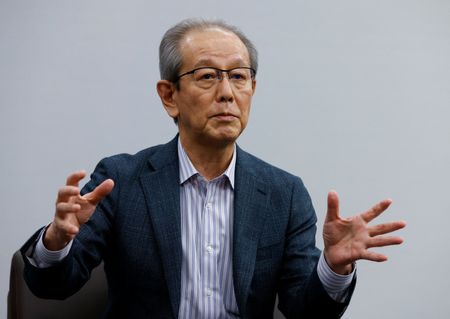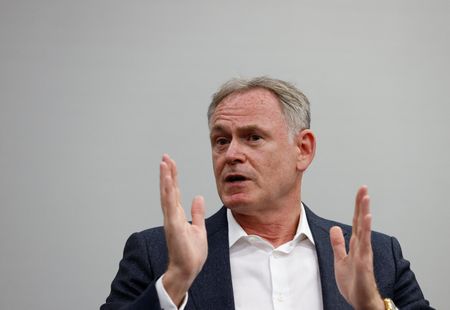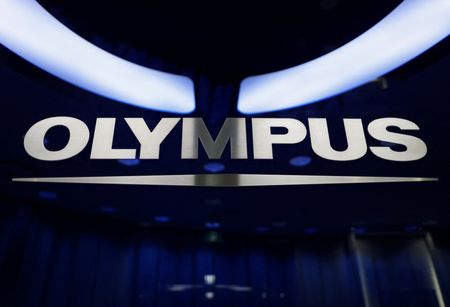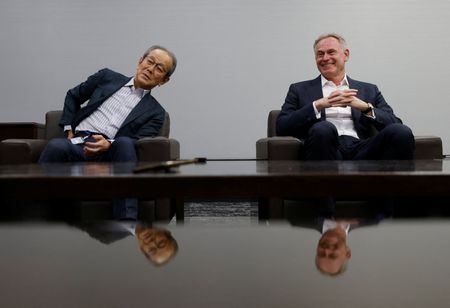By Rocky Swift and Mayu Sakoda
TOKYO (Reuters) – Japanese medical equipment maker Olympus Corp has largely completed a slew of asset sales and is now keen to do deals, particularly in digital technology and robotics, its chief executive said.
“Olympus has tended to make everything by itself and now we fully recognise that alignment with third parties is so critical,” outgoing Chief Executive Yasuo Takeuchi told Reuters in a joint interview with incoming CEO Stefan Kaufmann.
The company sold off its camera and voice recorder units to Japan Industrial Partners in 2021. In August, it made its biggest divestment yet, selling its microscope unit – the business on which it was founded more than 100 years ago – to private equity firm Bain Capital for 428 billion yen ($3 billion).
“Our transformation is not over,” added Kaufmann. “There’s still a lot of things we need to do.”
Kaufmann, a German who has spent most of his two decades at Olympus in human resources roles, will from April become one of a handful of foreign CEOs leading a major Japanese company.
Olympus, which makes endoscopes, flexible cameras used in medical exams and other tools that minimise the need for surgical incision, also wants to expand product sales and R&D to more countries, Takeuchi said.
The company also wants to build up its capacity for moving more quickly through regulatory processes and will be investing in quality assurance and its regulatory affairs team, Takeuchi added. He noted that the U.S. Food and Drug Administration was taking a tougher stance than previously.
Asset sales have helped the company improve profitability. It posted record half-year operating income last week, although the results underperformed market expectations, sending its shares down 11% on Monday.
Takeuchi said the company had been “too optimistic” in trying to contain rising input costs amid a shortage of semiconductors. COVID-related shutdowns in China also weighed on sales in a market where profitability is normally “very good,” he added.
Even so, Olympus shares are not far from historic highs, up almost 30-fold from a nadir in 2011 when its first foreign CEO Michael Woodford exposed accounting fraud related to overpaying for acquisitions to hide losses.
Woodford was fired soon after his appointment and lost a battle to take control of Olympus. In a memoir about the scandal, he called out Kaufmann for failing to back him up at the time.
Kaufmann insists the Olympus of today is a very different company, with a revamped board structure and more rigorous corporate governance.
The company has embraced proposals from activist investor ValueAct Capital, bringing on one of its partners Robert Hale in 2019 as an outside director – a role he still occupies.
“Our company did wrong,” Kaufmann said, referring to the accounting scandal. “Michael Woodford was right to disclose it. As a company, we were sanctioned quite drastically, but not unfairly. We accept it, and we learn from it.”
(Reporting by Rocky Swift and Mayu Sakoda; Editing by Edwina Gibbs)




